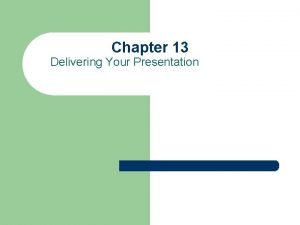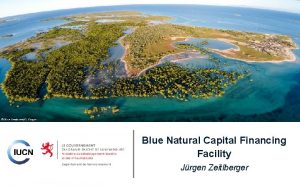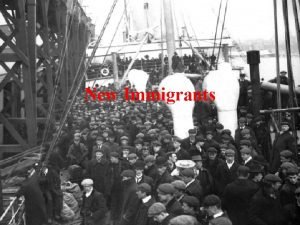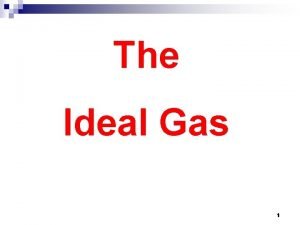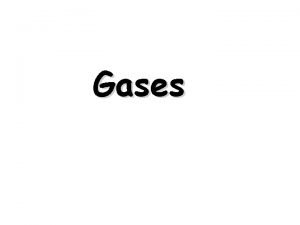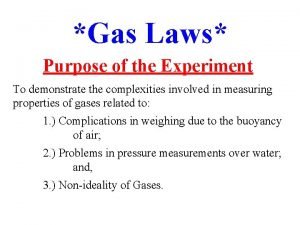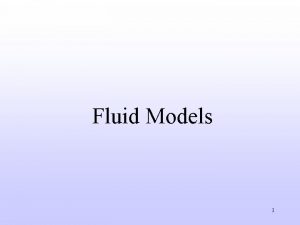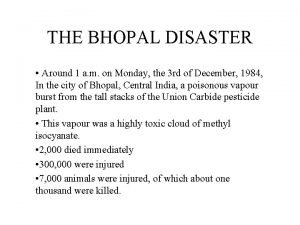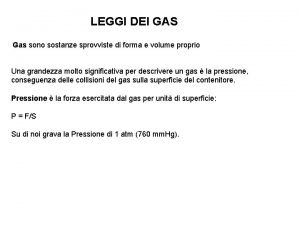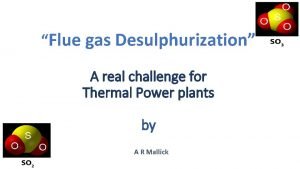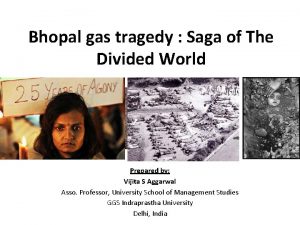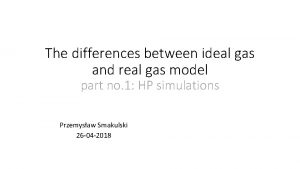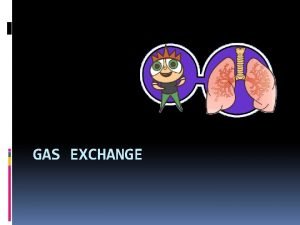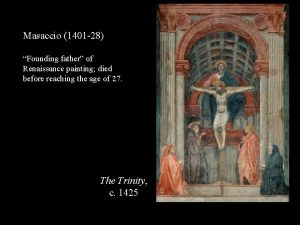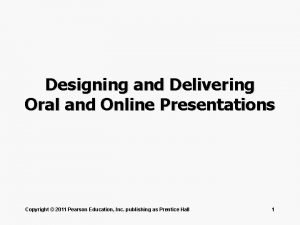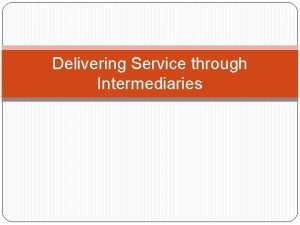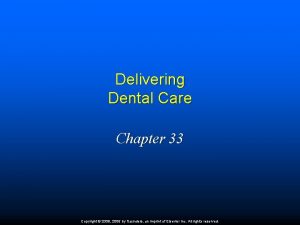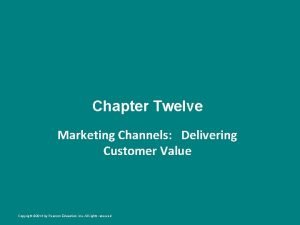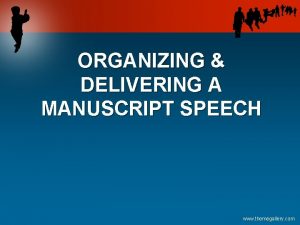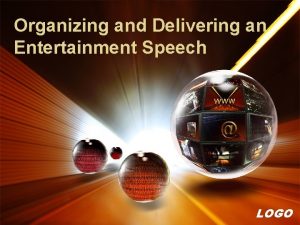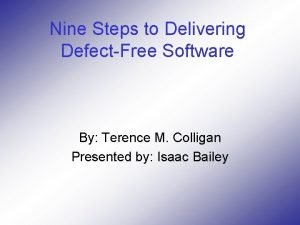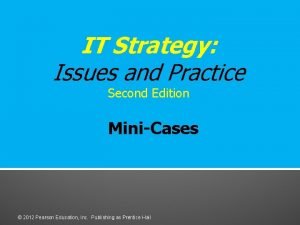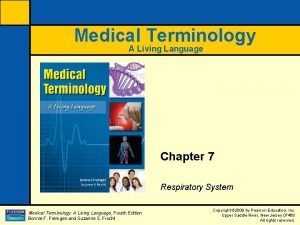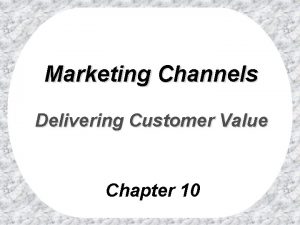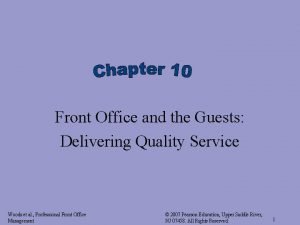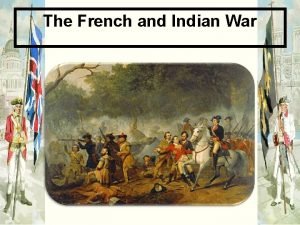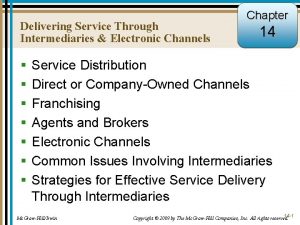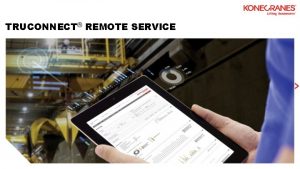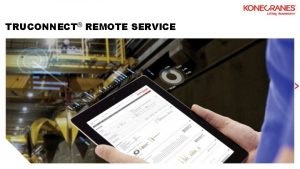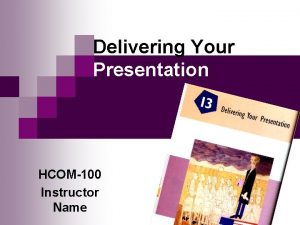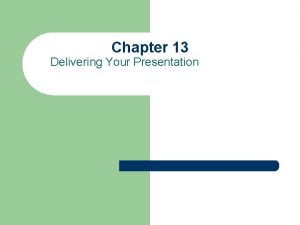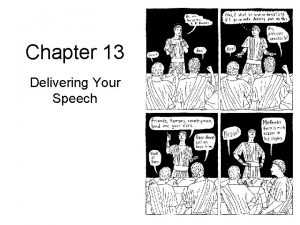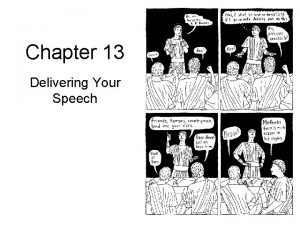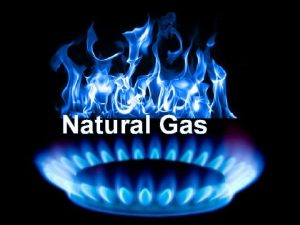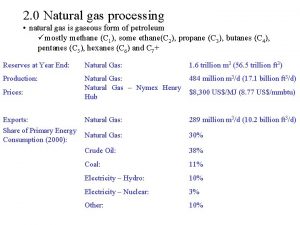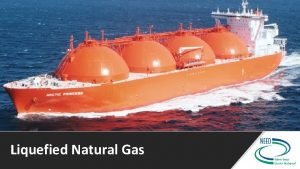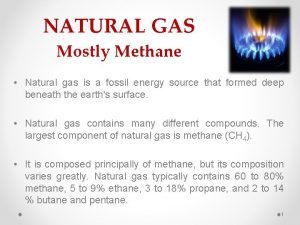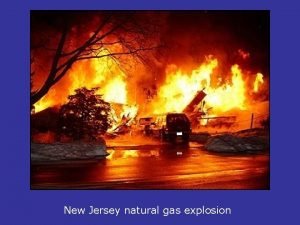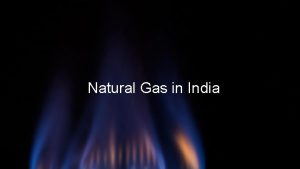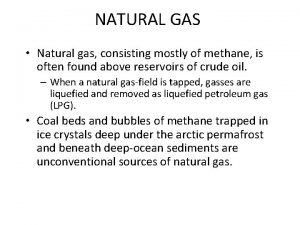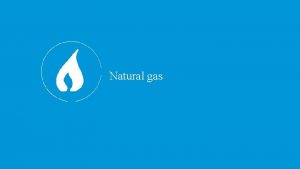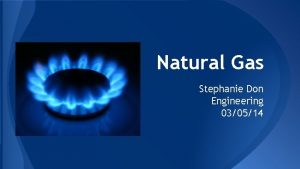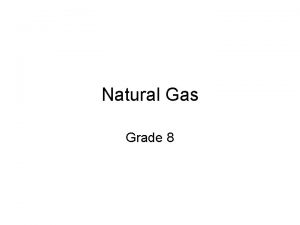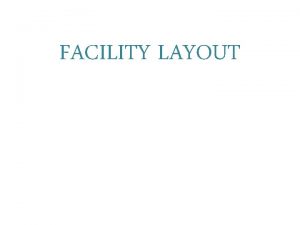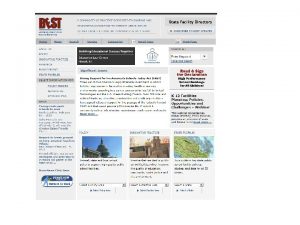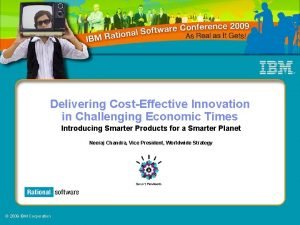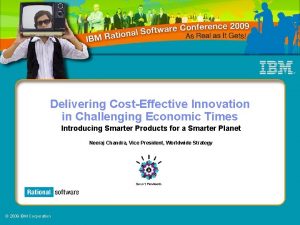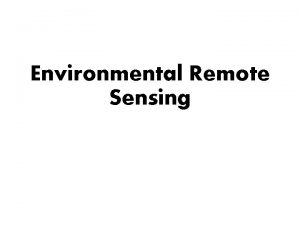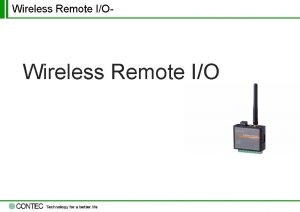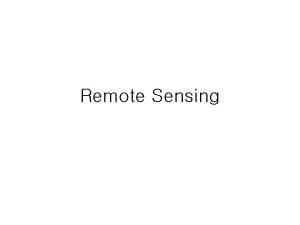Delivering CostEffective Natural Gas to Your Remote Facility



































- Slides: 35

Delivering Cost-Effective Natural Gas to Your Remote Facility Your Speaker: David Van. Laar Engineering Manager IMW Industries Your Host: David Orton Senior Vice President, Global Business Development & Marketing IMW Industries

About IMW has been manufacturing industrial machinery since 1912, and has evolved to be a leading manufacturer of natural gas compression systems, serving all major markets Globally. Equipment is currently operating mid-east to North of the Arctic Circle. • • Quality Products & Leader in CNG Compression Non-Lubricated Compression for Clean CNG A variety of configurations for all applications

A Clean Energy Company IMW operates as a wholly owned subsidiary of Clean Energy Fuels Corp. (NASDAQ: CLNE). Clean Energy is the largest provider of natural gas fuel for transportation in North America and a global leader in the expanding natural gas vehicle market. Clean Energy has operations in CNG and LNG vehicle fueling, construction and operation of CNG and LNG fueling stations, biomethane production, and compressor technology.

Continuing Education Credit 1 hr Technical Informal More CPD Info or Board Room Attendance: • • Name Job title Company Email webinars@imw. ca

Join the Discussion!

Your Speaker David Van. Laar, P. Eng Manager, Product Solutions Group & Engineering IMW Industries

Delivering Cost Effective Natural Gas to Your Remote Facility April 24, 2014

Overview of Natural Gas and CNG Compressed natural gas (CNG): § composed of approximately 95 percent methane § normally stored at 3, 600 psi (250 bar) in specially designed containers § stays in a gaseous form § typically compressed from a transmission or distribution pipeline § 30% lower cost than other fuels § 30 -40% fewer greenhouse gases during combustion than other fuels

CNG for Industrial Gas – Why? § Low Cost

CNG for Industrial Gas – Why? Low Environmental Impact

CNG for Industrial Gas – Why? Safer § § non-toxic, lighter-than-air and disperses quickly higher ignition temperature than gasoline and diesel fuel narrow flammability range and will only burn when the ratio is between 5~15% mixed with air CNG/NGV systems and storage vessels are built to the highest standards and have long and enviable safety records worldwide

NGVs and Conventional CNG demand

Industrial Gas Concept ‘Mother’ Station ‘Daughter’ Station

End Users Power Plants – Mining - Metals Production - Pulp and Paper - Asphalt Production - Food Processing - Fracking Units - Drill Rigs

Main Components

Pipeline – Gas Source § Typically transmission lines (300 psi / 20 bar – 1000 psi / 70 bar) § Higher pressure means less compression is required – less energy consumption § Location of mother station is often flexible § Require gas with low water content or use gas dryer § Require natural gas with >90% methane

Compression – ‘Mother’ Station § Multiple compressors (500 to 3000 hp is typical) § Non-lube technology is important to ensure trailers don’t fill up with oil § Electric or engine drive § Typical station equipment: § Compressors § Chillers § Fill Posts

Compression – ‘Mother’ Station Full. Fill Technology ensures that every bulk gas shipment is completed quickly and filled as completely as possible. IMW systems ensure that transport modules are filled at the optimum temperature and gas density through: § Integration of proprietary compression technology and comprehensive dispensing architecture § PLC controlled continuous thermal management

Transportation § Transportation is most significant cost driver of industrial gas products § Trailers are made up of small or large cylinders in 4 types: § Type 1 – 100% steel (heaviest, smallest payload, $) § Type 2 – hoop wrapped steel § Type 3 – hoop wrapped aluminum § Type 4 – fully composite (lightest, largest payload, $$$) § Some vendors:

Decompression – ‘Daughter’ Station § Typical equipment: § Decanting Posts § Pressure Reducing Modules § Heating Control Modules

Decompression – ‘Daughter’ Station § Decanting Posts: § Hoses – usually multiple 1” hoses without breakaways § Emergency shut off valves (manual and automatic) § Temperature and pressure measurement § Low temperature construction § Over pressure protection

Decompression – ‘Daughter’ Station § Pressure Reducing Module: § Emergency Shut Off valves § Heat exchanger modules to heat gas § 2 stages of pressure regulation § Overpressure protection after both stages of pressure regulation § Optional metering

Decompression – ‘Daughter’ Station § Heating Control Module: § Provides heat for PRM heat exchangers § Includes pumps and water control valves § Includes PLC and electrical cabinet

Decompression – ‘Daughter’ Station § Other Developments: § All in one PRS units for International Customer § Mobile PRS for portable applications § Large custom units for specific applications

Decompression – ‘Daughter’ Station Maximum Offload Capacity ensures that only a minimal amount of gas is left on the trailer before it is disconnected. This is achieved by: § Using two line unloading methodologies where possible § Designing systems for minimal pressure drop § Employing scavenging compression where necessary to remove remaining gas

Decompression – ‘Daughter’ Station Proven Scalability to provide standard product to custom applications with current systems installed with capacity of up to 14, 000 Nm 3/h. § Provides redundancy, reliability and quality. § Can easily add more units if demand increases, or remove equipment and move to several smaller sites once gas pipeline arrives

Case Studies

Urumqi, China § Large central mother station in Urumqi § Many daughter compressor stations nearby to fill vehicles

Cavendish Farms - Canada § § 140 km round trip § Flow capacity: 5, 600 scfm 11 Type 1 tube trailers Remote, food processing plant Offsets 22 M liters of heavy fuel annually

Mexico § Type 4 trailers, ~160 km round trip § Provides fuel for Modelo (Corona) Factory § Flow capacity: 16, 000 Sm 3/h

Australia § Type 3 trailers, ~600 km round trip § Provides fuel for 100 MW power plant § Flow capacity: 13, 000 Nm 3/h

David Orton t: 604. 795. 9491 e: sales@imw. ca/facebook imw. ca/linkedin imw. ca/youtube 43676 Progress Way • Chilliwack, BC • Canada V 2 R 0 C 3 p +1 604. 795. 9491 f +1 604. 792. 3806 e info@imw. ca

Upcoming Webinars www. imw. ca/cng-webinars/ • • Free Monthly Webinars Documented CPD Credits May 22 Advanced LNG Fuelling Station Technology Michael Calderwood, P. Eng General Manager Northstar LNG June 23 CNG Facility Modifications Stephe Yborra, NGV America Rick Mendoza, Clean Energy July 24 Potential for Biomethane as Fuel for Fleet Vehicles Nicholas Lumpkin Director, Business Development Clean Energy Renewable Fuels

Questions?

Contact Us! IMW Industries 43676 Progress Way Chilliwack, BC, Canada V 2 R 0 C 3 +1 604 -795 -9491 www. imw. ca Questions? sales@imw. ca webinars@imw. ca
 Extemporaneous speech
Extemporaneous speech Blue natural capital financing facility
Blue natural capital financing facility Give us your hungry your tired your poor
Give us your hungry your tired your poor Derive ideal gas equation
Derive ideal gas equation Imaginary gas
Imaginary gas Differences between ideal gas and real gas
Differences between ideal gas and real gas Sutherland's law
Sutherland's law Causes of bhopal gas tragedy
Causes of bhopal gas tragedy Gas leaked in bhopal gas tragedy
Gas leaked in bhopal gas tragedy Volume molare
Volume molare Flue gas desulfurisation gas filter
Flue gas desulfurisation gas filter Poisonous gas leaked in bhopal gas tragedy
Poisonous gas leaked in bhopal gas tragedy Difference between ideal gas and real gas
Difference between ideal gas and real gas Persamaan arrhenius
Persamaan arrhenius Gas exchange key events in gas exchange
Gas exchange key events in gas exchange Delivering bad news mnemonic
Delivering bad news mnemonic The father of renaissance painting
The father of renaissance painting -is not one of the purposes for giving oral presentations.
-is not one of the purposes for giving oral presentations. Delivering services through intermediaries
Delivering services through intermediaries Delivering dental care chapter 33
Delivering dental care chapter 33 Exclusive distribution channel
Exclusive distribution channel Organizing and delivering an entertainment speech
Organizing and delivering an entertainment speech Types of entertainment speech
Types of entertainment speech Nine key strategic steps to produce defect free software
Nine key strategic steps to produce defect free software Delivering business value with it at hefty hardware
Delivering business value with it at hefty hardware Health and wellbeing 2026
Health and wellbeing 2026 What divides the nasal cavity
What divides the nasal cavity Marketing channel objectives
Marketing channel objectives Marketing channels delivering customer value
Marketing channels delivering customer value Delivering quality service
Delivering quality service Delivering business value
Delivering business value French and indian war
French and indian war Terry schuster
Terry schuster Electronic channels of distribution
Electronic channels of distribution Delivering lines based loosely on the written
Delivering lines based loosely on the written Sarah is delivering a presentation on the solar system
Sarah is delivering a presentation on the solar system
